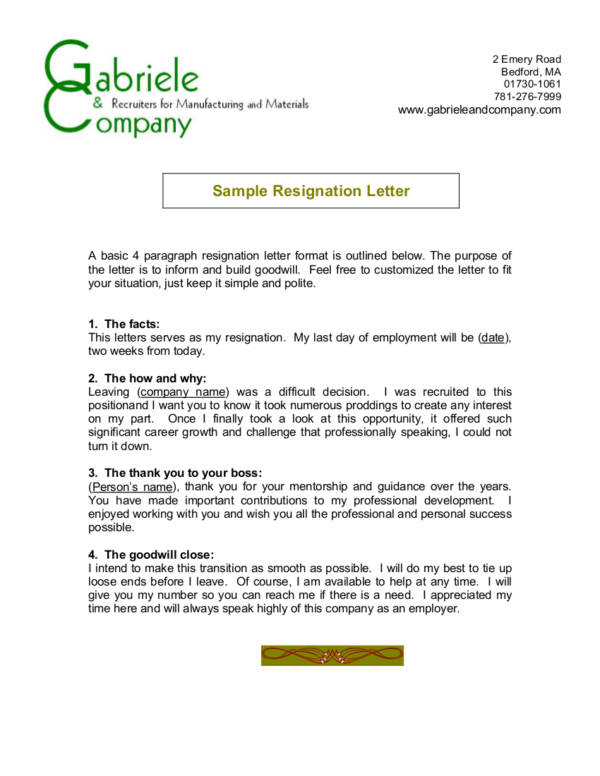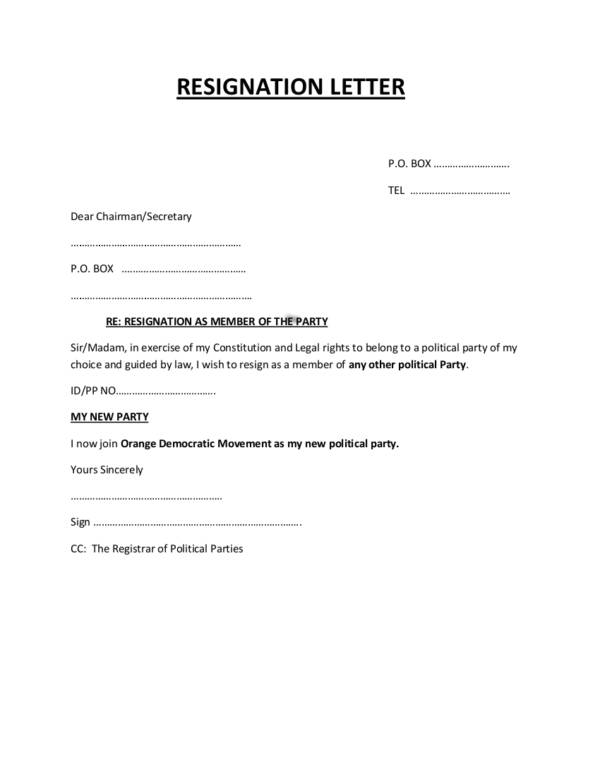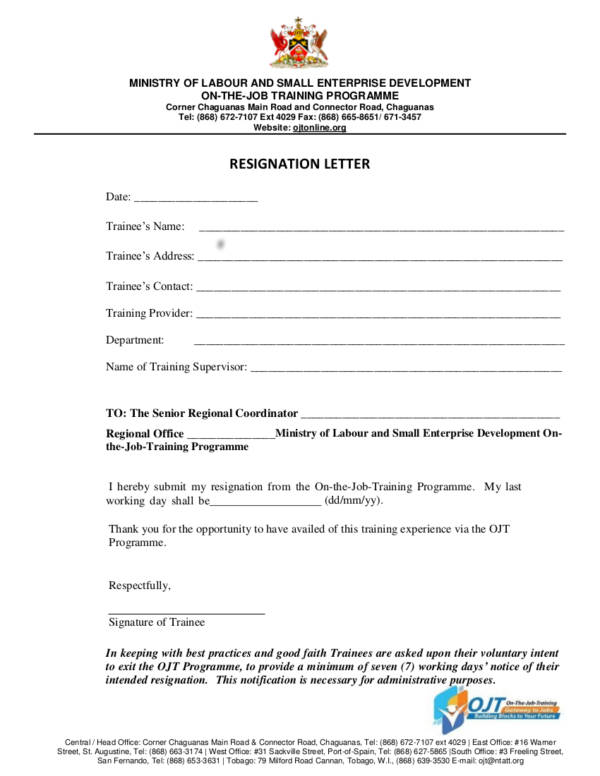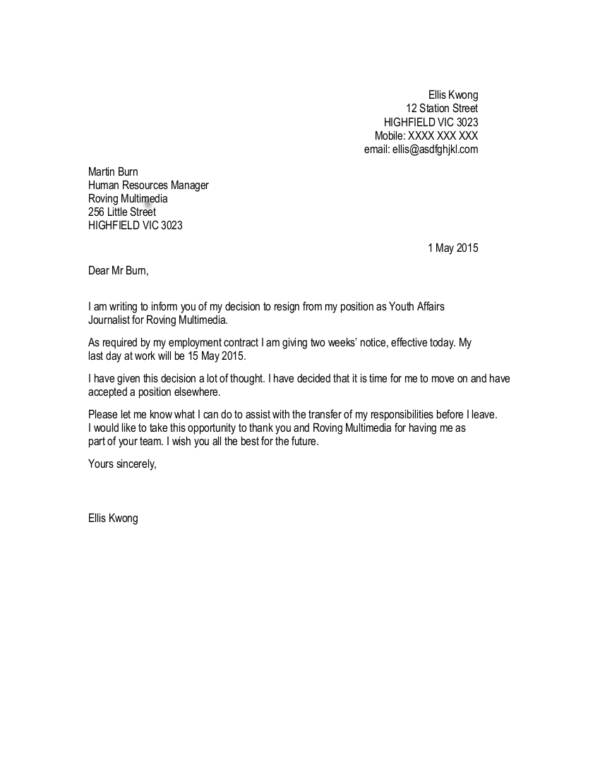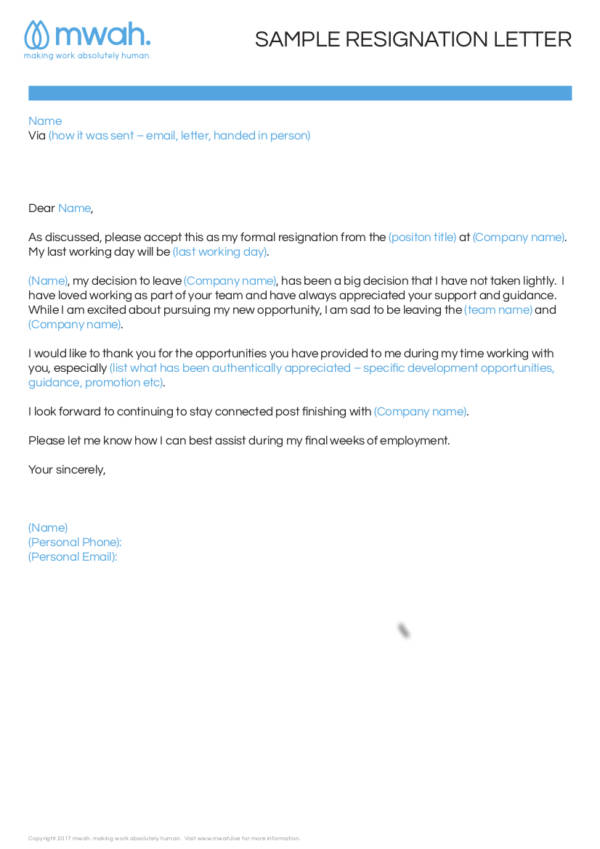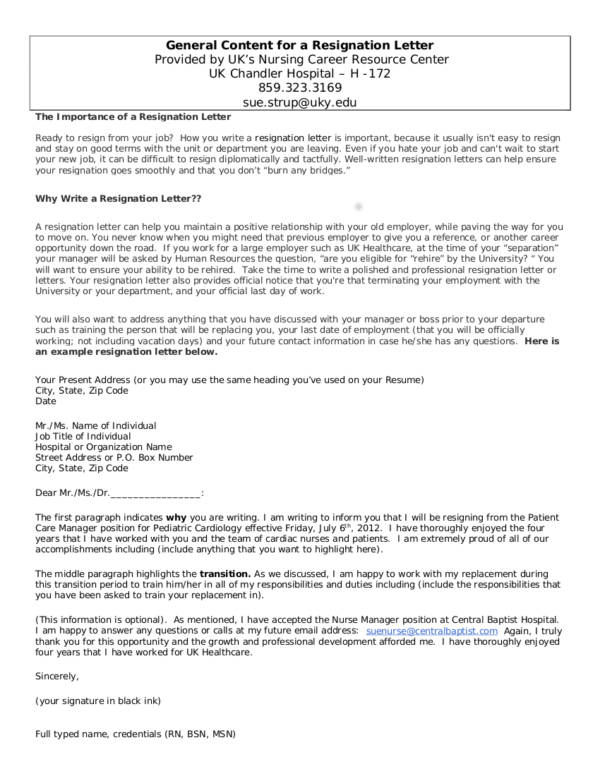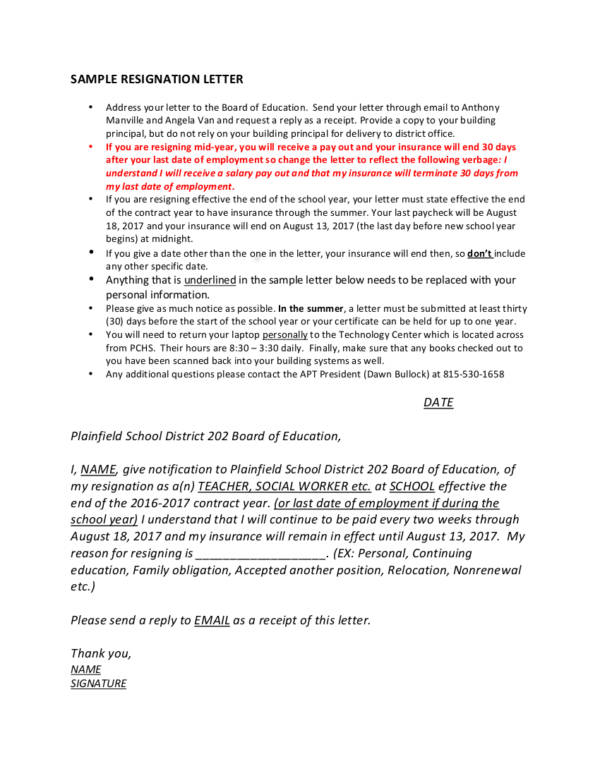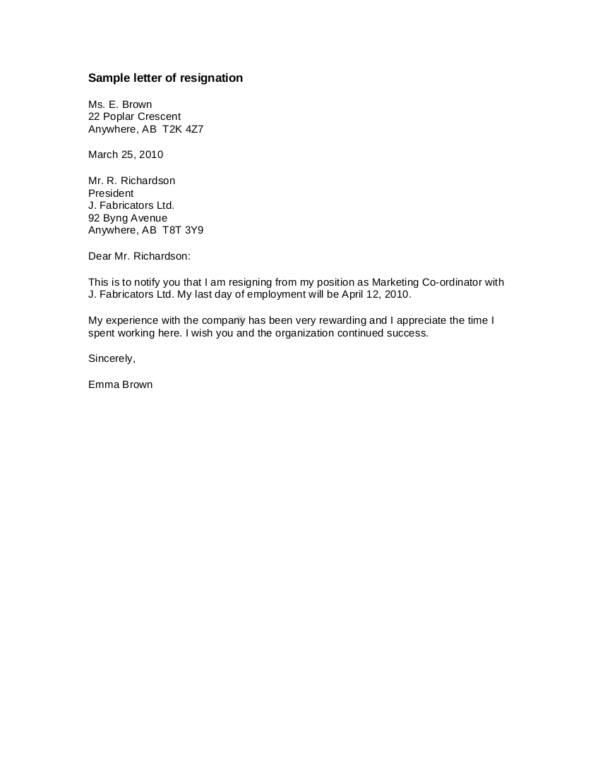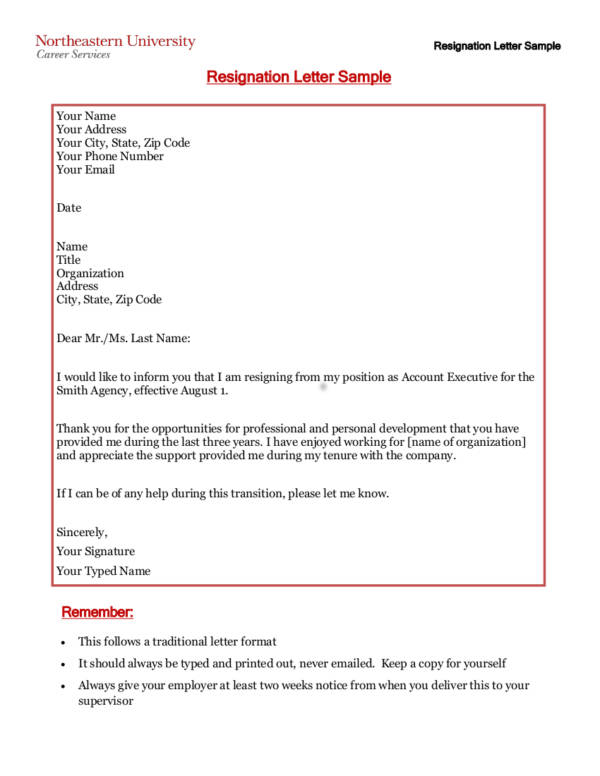You have finally done it! After weeks or months of suffering the inadequacies of your current work environment, you have finally landed yourself a more satisfying job at another company. You must be excited to conquer your new work environment with all the pent up enthusiasm you weren’t able to exercise in full force at your current workplace; but before you jump into your new job position, you have to make sure that you are able to leave your current workplace in a peaceful and graceful manner.
The prospect of going through a formal resignation process may seem like a futile act to you; however, always remember that your long-term reputation as a worker hangs in the balance. This means that the manner you have resigned from your previous job is an indication of your level of professionalism and work ethics. That’s why don’t just up and leave your company without processing your resignation properly. If you are new to the thought of resigning, then you need not bunch up your brows in worry. We are here to help you resign in a proper manner. Read our discussion on this page, and if you wish, you can also download our resignation letter templates on this page. We hope that by the end of this article, you would have gained new insights on the proper resignation process and you would be able to conduct yourself accordingly.
Generic Resignation Letter Sample
Letter of Resignation
Political Party Membershp Resignation Letter
Trainee Resignation Letter
Resignation Letter with Notice Period
How to Ensure that You Leave Your Job Properly
Most employees make the mistake of overlooking the importance of following a proper procedure when resigning. They think that since they are already leaving their job for another, their careers are no longer at stake. Indeed, they could not be more wrong. It is exactly during the resignation process that you are able to keep your long-term reputation intact. This is when you must display your utmost level of professionality by subscribing to proper rules on resigning. Be careful that you are able to follow these rules on proper resignation:
Inform the proper authority or company officer first before telling anyone else.
If you are not yet sure of your decision to resign, then, by all means, avoid babbling about your tentative plans to your colleagues. Regardless of how toxic or unruly the company environment may be, you have to observe proper decorum. It is frowned upon by the corporate culture for you to discuss your resignation plans with your coworkers before you have formally informed the human resource manager or employer. The reason behind this lies in the fact that human resource managers would disapprove of an employee who would go around influencing other employees to find a reason to leave the company. This is hardly an ethical move as this act is an outright disrespect to the goals of a company and one of it is to retain its employees.
Take the initiative to ensure an orderly transition.
This is especially important for those who are about to leave a higher job position since the higher one’s position is, the more responsibilities would they have. For instance, if you are an administrative officer, you can’t just leave your position right off the bat. If you do so, not only will your present company suffer but also your reputation. It is only a matter of time that word would go around broadcasting the level of impulsivity that you have left your previous position. Indeed, you don’t want the words “unprofessional” and “lousy work ethics” to be attached to your name as a worker. Hiring managers and employers that you may encounter in the future would find your actions detestable, and you will never know, your future job applications would be declined for exactly this reason. That is why, when you are conversing with your employer about your decision to resign, offer your services to them for at least two weeks or at least for an amount of time that is enough for your employer to look for another candidate who can fill in your position once you leave it. You must also offer your willingness to mentor your replacement and to properly turn over the documents that are corollary to your job functions.
In cases when you are urgently demanded by your new company to start working immediately, you must strive to ask for at least a day or two to set things in order for the next person who will occupy your old job position. In other words, you must tie up all the loose ends in the company that you are about to leave before commencing your employment in another. Your mindfulness of the smoothness of the transition period for your old workplace colleagues and for your replacement would be greatly appreciated. In fact, this act may just enable you to keep your bond with your colleagues and employer even after your departure.
Observe the proper notice period.
A notice period is the span of time that stretches between the moment you have initially informed your employer of your decision to resign and the date when your resignation actually takes effect. Ideally, you have to observe, at the very least, a two-week notice period. However, in reality, this may not always be feasible for varying reasons. That is why, when you are unable to satisfy the proper notice period because your new job offer requires you to start working immediately, then you must not allow yourself to be thrown off by this dilemma. Take initiative in requesting your new employer to give you time to prepare your departure from your company in an orderly manner. Surely, the human resource manager of your new company can be persuaded to give you a certain amount of time no matter how short it may be. You have the responsibility to observe at least a few number of days of notice period so that your company would not be able to suffer losses from a disruption of their regular operations caused by your abrupt departure.
Express your gratitude.
No matter how much things may have gone south with you and any of the higher-ups in your company, it is always a good idea to see the brighter side of things. This is especially true when you are already leaving your job. There certainly is no point in making your complaints as your words may be taken offensively and it would not lead to any organizational change. Instead of spouting your long list of complaints about the company, you can opt to thank your employer or manager for the opportunities that were given to you. Express your genuine gratefulness for all the things that you have learned from there. Remember, you must express an authentic gratefulness. Even the office conflicts and misunderstandings can be a good source for learning. You can even zero in on the fact that through your experience of conflict there, you are able to grasp the concept of professionality and good work ethics. A thank-you resignation letter is always better than a spiteful one.
Send a formal resignation letter.
You may be done informing the human resource manager or employer of your decision to resign verbally. It is understandable why you would wonder about the necessity of sending a written notice of your resignation when your employer and managers are already informed. The answer to your confusion is that you have to send a resignation letter regardless of prior verbal notice. This is so because your letter would serve as an evidence of your formal and proper resignation. Your letter contains the specifics of your resignation such as the date of its effectivity and the responsibilities that you promised to fulfill before leaving your position.
Now that you are aware of the specific steps you need to take before sending your resignation letter, you can then proceed on writing a resignation letter. Should you want more information, check out our website’s article that discusses some quick tips in writing a resignation letter. Simply click on the link provided to access these informative articles.
Thankful Resignation Letter
Letter of Resignation
Resignation Letter Sample
Company Resignation Letter
Account Executive Resignation Letter
Some Things You Need to Remember While Writing Your Resignation Letter
Do you need any help in writing your employment resignation letter? Perhaps you need a refresher on the proper way to write a resignation letter. Here are some tips you can follow when writing your resignation letter:
- Decide on the most convenient medium.You have the option to send your letter via email or through hand-carry. When making this decision, you have to carefully consider the work habits and the preference of your human resource manager and employer.
- Format your letter properly. Proper formatting covers a lot of aspects in your letter-writing. This includes the spacing, font size, margin spaces, etc. Our website’s collections of resignation letter templates are good sources of reference. You may download these as your guide to writing a proper resignation letter. These templates can show you the proper format of resignation letters. Below we provide you with a brief outline of how you may arrange the contents of your resignation letter:
- Write the return address, which must contain your complete name, your position title in your company, the name the department you are a part of, and your complete residential address.
- Then leave a space to write the date when you plan on sending your resignation letter.
- Leave another space then write the inside address. The inside address must contain the complete name of your recipient, his/her position title, the name of the company, and the company address.
- Write the formal salutation.
- Start the body of your letter with a brief and warm greeting. You may simply opt to write, “Good day!”
- After the warm greeting, write a clear and direct statement of your intention to resign from your job position. Make sure that you are able to specify the date when your resignation would be effective.
- Then you may dedicate a line or two in explaining why you have decided to resign.
- If you are genuinely feeling thankful of your experiences and achievements within the company, you may express your gratitude in the concluding part of your letter.
- Lastly, don’t forget to offer your willingness to help in ensuring a smooth transition period.
- Close your letter with a polite remark (Best regards, Warm regards, Sincerely, Yours truly).
- Don’t overshare. While it is your responsibility to provide an honest explanation why you want to leave your job, you must also be aware of the fact that you don’t have to provide every detail of your reason for leaving. In fact, you are not required to give the whereabouts of your new company, neither is it your obligation to divulge information about your new job position such as the nature of your work, the amount of your salary, company benefits, etc.
- Be consistent. This means that the reason for your resignation that you would state in your resignation letter must be consistent with the reason that you would tell your other colleagues. This is important to build credibility, for after all, what kind of a professional are you if you are speaking different tunes to different individuals, right? Another reason why you must be consistent with the information you would tell your colleagues pertaining your resignation is the fact that companies are geared toward protecting their company’s security. One important aspect that they keep their eyes trained is on making sure that none of their employees would be persuaded to leave their jobs for another company. It is also for this reason that you must not share with your colleagues your plans on resigning before you have talked to your employer or manager.
- Use formal, clear, and direct language. This means that you must avoid dillydallying. Go straight to the point of your resignation, the reason for it, and the specific date of its effectivity. You must use words that are easy to understand and comprehend. Avoid using highfalutin words that would only confuse or irritate your employer. You may sound condescending and aloof if you write a resignation letter that sounds like a philosophical treatise.
- Be polite. It is extremely important for you to always keep your resignation letter polite. It is of no consequence that you harbor grudges with the company or its administrators. You better keep your negative feedback to yourself and keep your writing polite and succinct. Avoid spouting spiteful and blaming words. The time for you to give complaints has gone the moment you decided to leave your position in the company. Politeness is a way for you to properly end your term in your company.
- Do not assume intimacy when addressing your manager or employer. No matter how close you may have been when working alongside your manager or employer, always remain formal in your resignation letter. Don’t assume an unprofessional tone as that would defeat the purpose of sending a resignation letter—and that is for the sake of formality and for the company’s record-keeping.
- Keep your letter short but not too short. Since a resignation letter’s purpose is to inform, there is certainly no reason for your writing a resignation letter that is too lengthy. The adequate length that is commonly considered as appropriate is one to two pages long.
With all the information we have imparted to you, we hope that these have enlightened you on the appropriate way for you to tender your resignation. Just keep these rules in your mind in case you may be placed in the same situation again.
Related Posts
Resignation Letter for Medical Samples & Templates
Letter of Intent Samples & Templates
Letter of Intent for a Job Samples & Templates
Lease Proposal Letter Samples & Templates
Letter of Inquiry Samples & Templates
Character Reference Letter Samples & Templates
Claims Letter Samples & Templates
Response Letter Sample & Templates
Follow Up Letter Samples & Templates
Sample Project Proposal Letter Templates
Donation Letter Samples & Templates
Addressing a Formal Letter Samples & Templates
Grievance Letter Samples & Templates
Sample Sponsor Thank You Letter Templates
Sample Letters of Request

